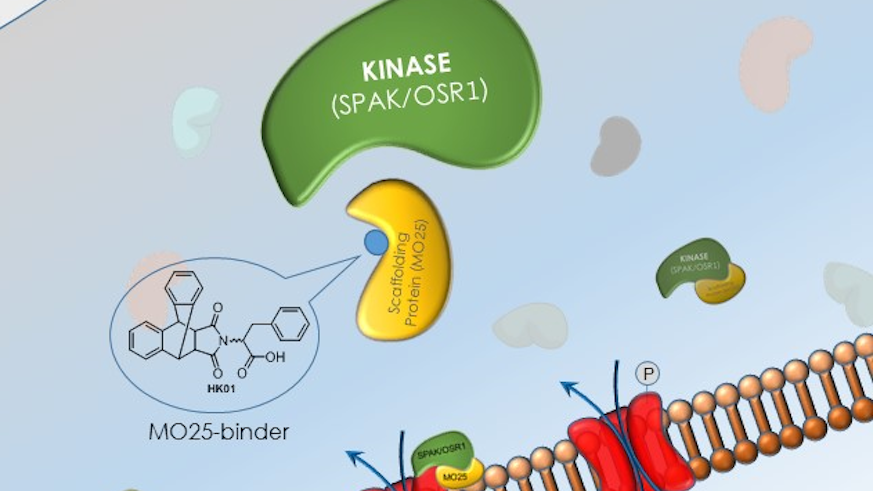New avenue explored for targeting cancer, strokes and hypertension
13 February 2017

Researchers at Cardiff University’s School of Pharmacy and Pharmaceutical Sciences have discovered a new clinical approach to provide a possible new avenue for treating a range of common diseases including cancer, strokes and high blood pressure.
The novel approach consists of indirectly targeting enzymes within cells, called kinases, which, when they malfunction, cause these often debilitating medical conditions. By inhibiting protein kinases, their function is significantly reduced which can stop or delay the onset of cancer, hypertension and many other diseases.
There are already up to 30 drugs available that target protein kinases directly to treat various diseases but this new research investigates how more drugs could be developed that indirectly inhibit these kinases to slow down the onset of these medical conditions, and potentially lead to fewer side effects for patients.
It’s known that some protein kinases become activated and lead to the onset of these diseases when they bind to another protein. Researchers in this study found a compound that could bind to the protein (MO25), preventing it from binding with the kinase which, in turn, prevented the kinases from being activated. It’s therefore anticipated that this indirect approach to inhibiting the kinases can ultimately treat numerous diseases.
Cardiff University’s Dr Youcef Mehellou, who led the research, said ‘Longer term, this research opens a new avenue for the discovery of new drugs for diseases such as cancer, hypertension, strokes, neurodegenerative diseases, viral infections and cardiovascular diseases. The medicines designed through this approach would most likely deliver more specific drugs and hence these would have less side effects than the classic kinase inhibitors that are currently used.’
Now that the molecular concept has been validated, work will continue in the lab to find a more effective compounds with better drug-like properties to bind protein MO25 and potentially treat high blood pressure and other diseases.
